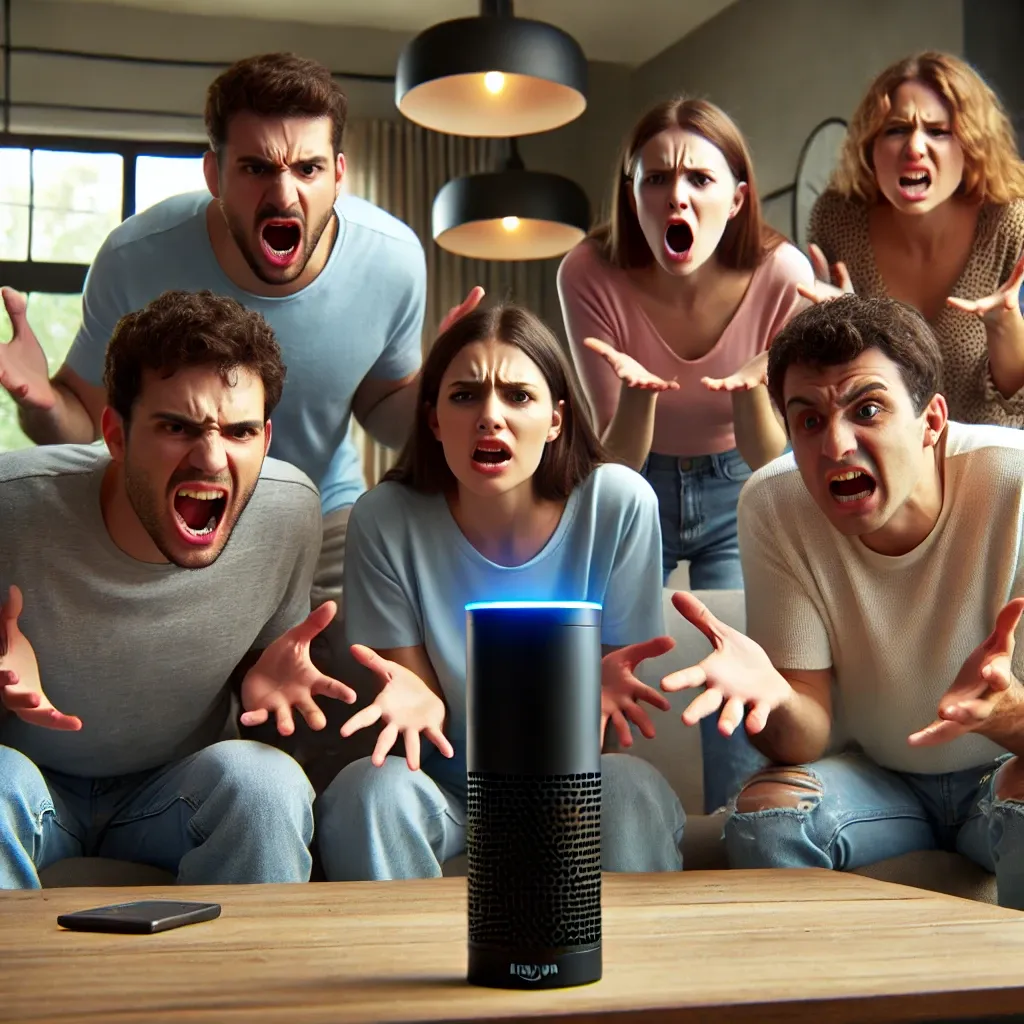The One AI to Rule Them All

With xAI's 'Grok3' now out the door, we may be on the verge of yet another model war. But a smaller one. More like guerrilla warfare, fought in the weeds. It doesn't feel like it will be the big, all-out arms race we've seen in the past. That's in part because the gains, while real, are also increasingly expensive and granular. Grok, as a late entrant into the race, needed to catch up.1 It took a "Colossus" supercluster supercomputer datacenter, but it appears that they've now risen to or slightly above the competition, at least in some metrics. But with new models from Meta and OpenAI already stated to be on the horizon, that feat will probably be short lived. They'll all go back and forth with tweaks to stay atop the Chatbot Arena.
All of that is to say that we're seemingly reaching parity amongst the players. Again, they all have more specific areas of focus and sub-features which continue to make impressive breakthroughs and gains – OpenAI's 'Deep Research' being one key recent example – but at the same time, they're all working to consolidate their products and to simplify them for everyday use. Again, this is what you'd expect as progress continues and the space settles, even just a bit.
That leads to the next obvious question: which product will win? Sure, it undoubtedly won't be that black and white, but still, there's likely to be one break-away winner in the space, just as Google came to dominate search.
Right now, the early winner is pretty clearly ChatGPT. But again, that has been during a time of tumult. With so many companies popping up and so many products getting major updates on a weekly – if not more often – basis, OpenAI used its first-mover advantage to win the early adopter crowd, which seemingly crossed over into a more mainstream user base faster than we've ever seen. Said another way: if you wanted to "try" AI, you likely tried ChatGPT.
But that era of experimentation may be coming to a close. And the fact that almost all of these products now have paid tiers is likely to be a forcing function when it comes to choosing your "side".
Alongside Grok3, Xitter rolled out a new price for their premium tier which grants you access to the latest model. And that price is basically double what it was before.2 OpenAI now has their $200/month 'Pro' tier, which people (myself included) upgraded to in order to try the latest and greatest models and products – notably, the aforementioned Deep Research, but also their first agent, Operator. Not only are these products not cheap, they're expensive. So much so that it's unlikely most consumers will actually pay for them, but rather professionals will. But each of these models is also zeroing in on a more consumer-focused tier that again, may force you to pick one product.
To be clear, I'm just talking about the consumer-facing side of AI here. Professionals and power users will undoubtedly pay for, and get value out of, multiple models and products. But just as with the streaming wars, consumers are not going to buy all of these services. And unlike that war, where all of the players had differentiating content, again, the AI services are reaching some level of parity (for consumer use cases). So whereas you might have three or four streaming services that you pay for, you will likely just have one main AI service.3 Again, it's more like search in that way.
But search was never a paid service, despite many trying to make that happen over the years. Google won by being technically the best and eventually their brand carried them even as others got closer in quality. Even Microsoft with Bing and all the money in the world famously couldn't compete. Again, ChatGPT seemingly has that brand advantage right now, but it's early. The battle is just heating up with many levers about to be pulled.
The biggest of those will undoubtedly be Google baking Gemini into search itself. They've been doing this over the past year, and that's seemingly about to ramp up in a major way. And it makes sense, while these AI services haven't noticeably eaten into web search yet, they will. Some of it will be the "search-cutters" (those who start to use web search less and AI chatbots more) but a bigger eventual risk is the "search-nevers" – the kids who grow up using AI and not web search.
Google continues to put on a brave face in public (comments), but this is existential. And it's also one of those things that has a high risk of being an "anagnorisis" moment – realized later, because everything seems fine, until it's too late. But follow Google's actions here, not their words. They see this. They're racing to meet and beat the moment. Innovator's Dilemma, be damned.
Beyond search, they have Chrome and Android to use as levers, both of which have already started too. In a way, I'm guessing they'll run a Meta model (not to be confused with Meta's AI model, Llama) and plug any AI development/functionality that's working into their massive user base via those surfaces. And that could work. But it's definitely not guaranteed. Google has never been good about productizing such things, even when – and perhaps especially when – they have a technological advantage. From Google+ to Google Assistant, it's not as easy as shoving the products in everyones' faces.4
Speaking of Meta, they're already trying to do this as well. They're touting millions and millions of users of Meta AI – probably in a similar vein to how Google+ touted their millions and millions of users back in the day. What are users – people explicitly trying to use it – actually doing with it? It's not clear, but it's also clearly not the same use case as the more general chatbots like ChatGPT at the moment. To make that happen, Meta probably needs their own stand-alone app. I know, I know, Zuck hates apps because Zuck hates Apple. But Google learned this. xAI learned this. We need a Llama app.5
The fact that Meta's models have been "open source" (read: open weight) from the get-go now looks even better post-DeepSeek. But it doesn't negate the need for an actual product here. And because Meta isn't trying to sell their AI directly to consumers, they may have an advantage over ChatGPT, Gemini, Grok, and the like. But that also doesn't negate the need to monetize – especially if they have a service and not just a technology to help bolster their ads business.
Regardless, a free and focused Llama/Meta AI service would help keep the other competitors honest. They'll all continue to have some sort of free layer. The question will be if those free layers become more or less restrictive over time as all these players battle. Right now, there are limits on usage and cutting-edge models. And those limits are more than enough right now for most "regular" users. But if and when AI becomes more integral into many everyday tasks in everyday lives, we'll see how that shifts...
If some of these companies figure out a way to monetize beyond paid tiers, it could change a lot of equations. Google is trying with advertising, obviously. OpenAI has said they don't want to go down that particular path, but we'll see. It all depends on what works. Otherwise we continue down the path where "free" equates to old models (perhaps open sourced),6 operating more slowly.
Apple also doesn't aim, at least right now, to monetize AI directly. But they are helping OpenAI monetize thanks to the integration between the two sides. I still wonder if they won't eventually need their own answer to ChatGPT. And that's not Siri – at least not how she works right now. (Which is to say, barely.) It would be more akin to a stand-alone Siri app. As Apple often does, they're undoubtedly taking a wait-and-see approach as the market evolves and matures. But as that happens quickly, Apple is moving... pretty slowly. Probably far too slowly.
Anthropic and Perplexity would seem to be in trickier positions with their services since they don't have as many points of leverage to gain massive consumer adoption, fast. Of course, Anthropic is mainly monetizing through their API at the moment (sort of the inverse of OpenAI). While Perplexity is trying to differentiate on that all-important search focus in particular. Both have been fine and even good in the early days,7 but as everything matures it becomes more murky. Does Amazon bolster Claude by way of Alexa? The latter is on the verge of a major revamp to bring her up to parity (Amazon hopes) with the AI chatbots. And this upgrade will seemingly include a paid layer as well. Yet another major player in the arena...
And then there are the foreign wild-cards. Can Mistral ride on an API business or will they need Le Chat to become a major consumer player? Does being Europe's AI champion help them a bit – or hurt them? Meanwhile, DeepSeek, after lobbing a grenade into the heart of all of this a few weeks ago, also undoubtedly needs answers for all of the above. Do they become China's champion? Even in the face of Alibaba and Baidu? Again, for consumers, there is only likely to be one.
Oh yes, and Microsoft. Where do they play here? Clearly in the cloud and enterprise, but they obviously really, really want a consumer hit here too. And while the deep partnership with OpenAI pointed to a path for Bing, that window has seemingly already shut. Now it's all-in on their too nebulous Copilot branding and products. Can they capture consumers? (Um, TikTok?) It feels unlikely given Microsoft's history here, and at what point to they simply cede to that partner in which they'll own a massive, multi-billion-dollar stake? At least in consumer.
- ChatGPT – This remains OpenAI's race to lose. But as such, they have the most to lose and a massive target on their back. An multiple former co-founders who are now competing with them. Including one who is the richest man in the world, and really doesn't like them, and who has the ear of the most powerful man in the world – though such proximity may ultimately backfire, and has already, in a way... Do they need their own device? And chips? And everything else? Can they continue to execute while putting out a million fires? SoftBank's big bets don't have the best track record. But when they work, they really work.
- Gemini – It's not just that it's Google, but it's the DeepMind team now seemingly fully empowered by Google. Technically, they're likely to always be near the top if not at the top, but productizing their work remains an issue. As do blindspots around "not built here" type hubris and general big company in-fighting. Still, if mobile devices start mattering more here, they're well placed with Pixel. Will search (and really, advertising), eventually get in the way?
- Meta AI – They have 3 billion+ users in which to shove anything they do in their faces. And they have no shame about doing so. They seemingly made the right call in open-sourcing (read: open-weighting) Llama from the get-go and that is likely to pay off in different ways – but will it ultimately pay off the costs? They still don't have that hardware mineral they crave, but they're getting closer with the Ray-Bans potentially segueing into the true AR glasses...
- Grok – There's no denying how impressive it is that they've seemingly caught up with the competition in just about a year. And Elon Musk can out-raise almost anyone (except you-know-who – so far). If the datacenter spend still matters beyond their catch up game, this is key, but if it matters less... Regardless, it's not clear how to make Grok a stand-alone hit. It's interesting as a layer of Xitter, but that's a sub-scale social network. How does Elon get Grok in the hands of billions? (Um, TikTok?) Divert the billions spent on datacenters to marketing? The "anti-woke" silliness just seems like a massive distraction if they want to be taken seriously here – as they should now with the technology up to snuff.
- Claude – Anthropic clearly has the technical team and great product chops. But per above, it seemingly hasn't yet translated into mainstream adoption and mindshare the way that ChatGPT has. What changes that equation? Maybe it's Amazon and Alexa, per above, or maybe that hurts them in the consumer world with yet another player? Can they stay in this race?
- Perplexity – The only one of the listed players here without a clear billion-dollar benefactor. Sure, they have investors, but they lack the obvious Big Tech partner and/or world's richest person. At the same time, they've built a good product, going after a space people assumed would be impossible in search. There's one Big Tech player that needs help in both worlds, just saying...
- Copilot – I'm honestly not sure this is even the current branding for Microsoft's consumer-facing AI. They seem to change such things monthly. And they probably should change this one as they use it for everything and it's going to be confusing for consumers. Are they still focused on more emotional connections for consumer AI? Honestly, they should have cut a deal to make ChatGPT exclusive within Bing. You could say OpenAI would have never have done it, but there was a time when they needed Microsoft's money more than anything – that's probably it's own post.
- DeepSeek – While I have a hard time believing that a Chinese company is going to beat any of the above in our current political climate, I guess you could point to TikTok continuing to survive... And this team isn't resting on the disruptive laurels they laid down just weeks ago, as they're getting integrated into more and more places, it seems. But still, it's hard to see their consumer app/service continuing to thrive as countries move to ban it (but again, there's TikTok). I still think they end up as a bigger symbol than ultimate player here.
- Le Chat – The app is fine, the models are fine, but it's honestly just going to be a long, hard climb up this particular chart. Again, there is a European angle here, though that path may have been more clear when the EU was still taking a more adversarial approach to American tech. Now geography may just hurt the locals.
One more thing: I'm not including Siri or Alexa on this list until we see their actual approaches to consumer AI here – despite both being first/early movers in the general space! We should at least see that out of Amazon next week. Apple, it seems, will take longer. Even then, the "better" Siri is unlikely to be a truly conversational AI Siri, which instead is believed to be coming in, um, 2026. xAI clearly had a fire lit under them to compete in the space. Apple? Not so much, it seems...


1 Might they be the last of the AI "superpowers" at least when it comes to their own pre-trained LLM models? Or will there be one more still to come?
2 The Xitter premium model muddies this a bit -- you're also paying for the checkmark, no ads, etc. But it sounds like Grok will be getting its own paid tier/model as well...
3 I'm just talking about general purpose consumer AI services here. There will clearly be specialized, more granular ones -- there already are. But the jury is still out in terms of how much specialized functionality needs to exist outside of the main chatbots. Certainly, for some deep agentic behavior this seems likely. But how much of that will just be products/services that already own a particular market segment layering in AI (i.e. Airbnb adding in AI, etc)? More battles yet to come...
4 Including literally, with Google Glass...
5 Just think of the icon potential here...
6 It sounds like this is how xAI intends to utilize open source -- opening up older models, which is what they're going to with with Grok2 now. Might OpenAI follow this playbook too?
7 You continue to hear a lot of love for both products, but it also clearly seems to be more of the early adopter crowd versus true mainstream adoption


